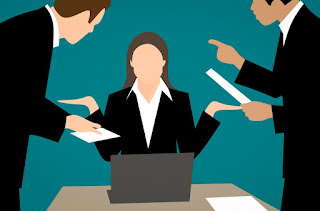How to communicate more effectively in a mediation
Effective communication is the basis of many significant relationships, be it personal or professional. But it is still overlooked in many organisations resulting, very often, in disputes. One of the ways of business dispute resolution is Mediation.
Mediation is very different from a formal court trial so it comes with a different set of challenges. Mediators attempt to resolve the conflict in a manner that both parties are satisfied with the outcome. To do so, effective communication plays a vital part. Some of the most effective ways to communicate are:
Listen more, interrupt less:
Communication is a two-way process. Giving both parties an ample amount of time to speak without interruptions is important. It allows you to hear, understand, and analyse the issue. Listening attentively is an excellent way of business dispute resolution.
Body language:
Our body constantly and unknowingly communicates whatever the mouth fails to. Picking up these cues is essential to make the communication more effective. A lot of information is contained in our body language, everything from posture, facial expressions, gestures to eye contact and even the speed of their speech speaks volumes. A lot of information could be decoded through one’s demeanour.
Be open, honest, and authentic:
For your clients to connect with you they must trust you and see you as someone empathetic. Try to develop a level of intimacy so that you can be perceived as someone who can be relied upon.
Come prepared:
Preparation goes a long way. Knowing how to go about the situation and forecasting the possible questions and preparing the answers in advance can give you an edge and will help you accomplish your intended impact.
Practise active listening:
One of the core components of
effective communication is active
listening. It ensures the speakers that they’re being understood and helps
them put their point forward with more ease. Active listening involves:
●
Keep an open mind
●
Listen attentively
●
Don’t interrupt
●
Ask the right
questions
●
Don’t finish their
sentences
●
Maintain good
eye-contact
● Focus on others rather than yourself
Effective communication takes
time and practice. Being patient also plays an important part in communicating
effectively. As you put more time and energy into it, you’ll be able to achieve
better results with these skills.

.jpeg)

Comments
Post a Comment